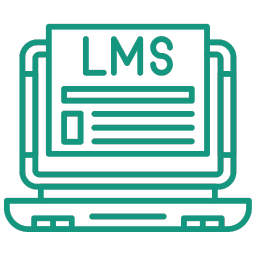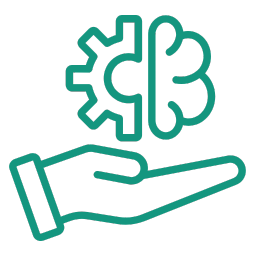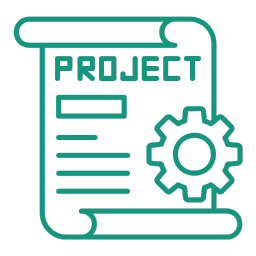Q. What is the AI in Clinical Research course and who is it designed for?
The Advanced Diploma in Artificial Intelligence in Clinical Research is a 4-month, application-oriented program that teaches AI, machine learning, NLP, and computer vision techniques for drug development, pharmacovigilance, and clinical data management. It's tailored for life science graduates (B.Pharm, M.Pharm, Pharm D, MBBS, BDS, BAMS, BHMS), nursing professionals, and graduates in biotechnology, biochemistry, and chemistry seeking globally recognized, future-ready skills in AI-driven clinical trials.
Q. How long does the AI in Clinical Research course take to complete?
This AI in Clinical Research course spans 4 months with 160+ hours of live e-learning, practical labs, assignments, and capstone projects—ideal for acquiring in-depth expertise in a structured timeline.
Q. What are the prerequisites for enrolling in an AI in Clinical Research course?
Eligibility requires a degree in pharmacy, medicine, nursing, or life sciences (B.Pharm/M.Pharm/Pharm D, MBBS/BDS/BAMS/BHMS, B.Sc in biotechnology, biochemistry, chemistry). No prior coding experience is needed thanks to the no-code/low-code AI platforms used in hands-on modules.
Q. Is the AI in Clinical Research course available online or only in-person?
The program is delivered through 100% live virtual classrooms, combining interactive webinars, cloud-based labs, and an AI-powered doubt-resolution bot—making it fully accessible worldwide without any in-person requirement.
Q. What certifications do you receive upon completing the AI in Clinical Research course?
Graduates earn the Advanced Diploma in AI in Clinical Research, shareable digital certificates, and IICRS alumni status, plus free access to one add-on module (Clinical Research, Pharmacovigilance, or Clinical Data Management) to bolster domain expertise.
Q. How much does the AI in Clinical Research course cost?
The tuition fee is INR 25,000/- for Indian participants and USD 500/- for international learners, with a INR 5,000 / USD 100 registration fee at enrollment and flexible payment plans available to support global accessibility.
Q. What software and tools will I learn to use in the AI in Clinical Research course?
Hands-on training uses no-code/low-code AI and ML GUI platforms, the IICRS LMS, and an AI bot for live assistance. You'll build predictive models, conduct NLP-based EHR mining, and apply computer vision to medical images—all without writing extensive code.
Q. Are there job placement services available after completing the AI in Clinical Research course?
Yes. IICRS offers pre-placement training, interview coaching, resume optimization, and assured interview calls with partner pharma, biotech, and CROs. These services ensure up to 90% placement success within six months of graduation.
Q. What is the difference between AI in Clinical Research and traditional clinical research courses?
Traditional courses focus on protocol writing, GCP, and manual data entry. In contrast, this program emphasizes AI-driven automation, predictive analytics, NLP for unstructured data, and computer vision—transforming clinical trial operations, enhancing safety signal detection, and optimizing patient recruitment.
Q. Can I take the AI in Clinical Research course while working full-time?
Absolutely. The course's flexible schedule includes evening and weekend live sessions, recorded lectures on the LMS, and self-paced labs—enabling full-time professionals to upskill without disrupting their careers.
Q. Does this course require prior programming or coding knowledge to enroll?
No prior programming experience is required. IICRS uses no-code/low-code AI platforms and intuitive GUIs for model building, allowing learners with clinical or life science backgrounds to implement machine learning pipelines, NLP workflows, and computer vision applications without writing extensive code.
Q. What specific AI applications will I learn to use in Clinical Data Management (CDM) and Pharmacovigilance (PV)?
In Clinical Data Management, you'll deploy AI for automated EDC population, intelligent query resolution, and anomaly detection in multi-site datasets. For Pharmacovigilance, you'll use NLP to extract adverse event narratives, train signal detection algorithms on real-world data, and automate MedDRA coding for faster case processing.
Q. How does the curriculum integrate the latest AI technologies like Generative AI?
The program includes dedicated Generative AI labs where students fine-tune large language models (LLMs) for tasks such as automated protocol drafting, eConsent scripting, and patient communication bots. Quarterly updates ensure hands-on exposure to platforms like GPT-4, T5, and BERT variants.
Q. What level of placement support does IICRS offer after course completion?
IICRS provides end-to-end career services including global recruiter networking, pre-placement training, personalized resume and LinkedIn optimization, assured interview calls for eligible graduates, and ongoing mentorship.
Q. Are the trainers at IICRS full-time academics or industry professionals?
Our trainers are industry veterans and PhD-level data scientists who have led AI initiatives at top pharmaceutical and CRO organizations. Their real-world experience in deploying AI/ML SaMD, conducting adaptive clinical trials, and obtaining regulatory approvals ensures you learn practical, industry-relevant skills.
Q. Will I get hands-on experience, and what kind of projects will I work on?
Yes. You'll complete hands-on modules in NLP-based EHR mining, computer vision for imaging endpoints, and predictive modeling for patient recruitment. The capstone project involves building an end-to-end AI pipeline for a real-world use case—such as automated safety signal detection or adaptive trial simulation.
Q. What specific career roles can I expect after completing this course?
Graduates commonly step into roles like Clinical Data Scientist, AI Clinical Trial Specialist, Digital Clinical Project Manager, and AI Pharmacovigilance Associate. Senior positions include Head of AI Strategy and Director of Clinical Innovation in pharma, biotech, and CRO environments.
Q. How is this course different from other generic AI or data science certifications?
Unlike generic programs, this course focuses exclusively on clinical research applications—covering adaptive protocol design, regulatory-aligned AI validation, CDISC-compliant data management, and domain-specific tools for risk-based monitoring and post-market surveillance.
Q. How does IICRS ensure the course content is relevant to the evolving regulatory landscape?
An Academic Advisory Board of FDA and EMA experts, industry CTOs, and leading academic researchers reviews and updates the curriculum biannually. Regulatory modules cover the latest guidelines (e.g., FDA AI/ML SaMD, EU Clinical Trial Regulation, ICH E6(R2)), ensuring compliance and industry alignment.
Q. How does IICRS's curriculum ensure it is globally competitive and aligned with international standards?
IICRS's Advanced Diploma in AI in Clinical Research is meticulously mapped to ICH guidelines (E6(R2)/E3), FDA AI/ML SaMD frameworks, and EMA regulatory science strategies, ensuring compliance with global best practices. Quarterly curriculum updates incorporate the latest AI algorithms, NLP techniques, and computer vision advances, coupled with CDISC standards (SDTM, ADaM) for clinical data management—making the program relevant in India, the USA, Europe, Australia, and beyond.
Q. What makes the faculty at IICRS uniquely qualified to teach AI in clinical research?
Our faculty comprises seasoned industry experts and PhD-level data scientists who have spearheaded AI-driven clinical trials at top-tier pharma companies and CROs. With hands-on experience in deploying machine learning pipelines, obtaining regulatory approvals for AI/ML SaMD, and publishing peer-reviewed research on deep learning in medical imaging, they deliver real-world insights and mentorship.
Q. How does IICRS provide practical, hands-on experience in a non-coding course?
IICRS leverages no-code/low-code AI platforms and interactive GUIs that abstract programming complexity. Participants build predictive models using drag-and-drop interfaces, conduct NLP-based EHR mining with prebuilt workflows, and run computer vision experiments on annotated medical images—all within a secure cloud lab environment.
Q. How does IICRS's focus on emerging technologies like Generative AI set it apart from other institutes?
Beyond core AI modules, the curriculum features dedicated Generative AI labs where students fine-tune LLMs for protocol drafting, informed consent scripts, and patient communication workflows. This emphasis on next-gen AI prepares graduates to lead innovation in AI-augmented clinical research.
Q. Does IICRS offer international internship opportunities?
Yes. Through partnerships with global CROs and pharma R&D centers in North America, Europe, and Australia, IICRS facilitates virtual and on-site internships, immersing students in live projects on adaptive trial designs, AI-driven pharmacovigilance, and real-world evidence studies.
Q. How does IICRS maintain the relevance of its course curriculum with rapid industry changes?
An Academic Advisory Board—comprising FDA regulators, industry CTOs, and academic researchers—reviews content biannually. Feedback loops from alumni and employer partners drive continuous enhancements, ensuring modules reflect the latest AI regulations, data privacy laws, and clinical research breakthroughs.
Q. Can students who are already working in the clinical research field benefit from the IICRS course?
Absolutely. The program is tailored for working professionals, offering flexible scheduling, recorded lectures, and targeted modules on AI validation and governance that complement existing clinical expertise—enabling immediate application of AI tools in current roles.
Q. How does IICRS's focus on both technical skills and clinical domain knowledge create a better professional?
By integrating machine learning theory, NLP workflows, and computer vision applications with core clinical research principles—such as trial design, GCP compliance, and pharmacovigilance—graduates emerge as hybrid experts adept at translating clinical questions into AI solutions and ensuring regulatory-grade implementations.
Q. What kind of alumni network and industry connections does IICRS provide?
IICRS alumni gain exclusive access to a global community of professionals across pharma, biotech, and CROs. Regular networking events, webinar series, and the IICRS Mentorship Portal connect members with senior leaders—facilitating collaborations, referrals, and career advancement opportunities.
Q. What career opportunities open up after completing an AI in Clinical Research course?
Graduates qualify for high-demand roles such as Clinical Data Scientist, AI Clinical Trial Specialist, Digital Clinical Project Manager, and AI Pharmacovigilance Associate. With expertise in machine learning, NLP, and computer vision for drug safety, alumni also advance into leadership positions like Head of AI Strategy or Director of Clinical Innovation in pharmaceutical companies, CROs, and biotech startups.
Q. How does this course prepare you for the future of clinical research?
By blending foundational modules on clinical research and drug development with advanced training in AI model validation, regulatory governance, and ethical AI, the curriculum ensures you master both technical and compliance aspects. Capstone projects and free add-on modules (e.g., Pharmacovigilance, Clinical Data Management) simulate real-world scenarios, equipping you for the next generation of adaptive, precision trials.
Q. What salary increase can I expect after completing the AI in Clinical Research course?
Professionals with AI-enabled clinical research skills command a 20–35% salary premium globally. In markets like the USA and Europe, median salaries for Clinical Data Scientists rise from $85K to $110K annually, while in India, AI-skilled pharmacovigilance specialists see hikes from INR 5 LPA to INR 7–8 LPA.
Q. How does this course differ from generic AI or data science courses?
Unlike broad AI or data science programs, this specialized curriculum zeroes in on clinical trial applications: adaptive protocol design, regulatory-compliant model validation (ICH E6(R2)), and AI-driven safety signal detection. You learn domain-specific tools and GUIs for risk-based monitoring, not just coding fundamentals.
Q. What hands-on projects and real-world experience does the course provide?
The program includes a capstone project that builds an end-to-end AI pipeline for patient recruitment and safety monitoring. Participants also complete labs in NLP-based EHR mining, computer vision for medical imaging, and predictive modeling for dropout prediction—mirroring industry workflows.
Q. How does the course keep up with rapidly changing AI technology and regulations?
IICRS maintains an AI Innovation Lab and partners with industry leaders to update course content quarterly. Regulatory modules cover emerging guidelines—from FDA's AI/ML SaMD framework to EU MDR—ensuring your skills align with the latest ethical AI and data privacy standards.
Q. What networking opportunities does the course provide?
Live e-learning sessions foster peer connections across global cohorts. Guest lectures and webinars feature senior industry experts from leading pharma and CROs. IICRS alumni status grants access to an exclusive global network, job fairs, and community forums for ongoing collaboration.
Q. How does completing this course position you as a thought leader in clinical research?
By mastering strategic AI implementation, publishing your capstone findings, and engaging in IICRS's webinar series, you build a visible professional brand. Digital badges and LinkedIn endorsements for your Advanced Diploma signal your expertise, opening doors to speaking engagements and advisory roles.
Q. What ongoing support and resources are available after course completion?
Alumni receive lifetime LMS access to updated lectures, AI code repositories, and compliance templates. The AI bot remains accessible for doubt resolution, and the career services team continues offering resume reviews, mock interviews, and placement assistance with global industry partners.
Q. How does this course prepare you for regulatory submissions involving AI?
Dedicated modules on AI validation, governance, and quality risk management teach you to generate ICH E3/E6(R2)-compliant documentation. Real-world case studies demonstrate how to draft AI model validation plans and safety reports, ensuring you can support regulatory filings for AI-enabled clinical trials.
Q. Why is artificial intelligence needed in clinical trials today?
With the average drug development timeline at 10–12 years and costs surpassing $2.8 billion, integrating AI in clinical research is essential to automate data harmonization across EHRs, medical imaging, and genomic datasets. AI-driven clinical trial data management and machine learning algorithms enable real-time insights, reduce manual errors, and accelerate adaptive protocol amendments—delivering faster, cost-effective therapeutic solutions.
Q. How does AI improve patient recruitment in clinical trials?
AI-powered patient matching leverages natural language processing (NLP) on unstructured EHR data to identify eligible candidates within days. Predictive analytics model dropout risk factors—age, comorbidities, and adherence history—boosting retention by up to 25%. This AI-driven recruitment strategy achieves a 40% faster enrollment rate, enabling sponsors to meet sample size targets efficiently.
Q. What are the main problems in traditional clinical trials that AI can solve?
Traditional trials suffer from data silos, high query rates (≈15% per CRF), and static protocols requiring mid-study amendments (≈30% of trials). By applying machine learning for automated data cleaning, adaptive trial designs via reinforcement-learning models, and risk-based monitoring, AI cuts query resolution times by 60% and halves amendment frequencies, enhancing clinical data integrity.
Q. How can AI reduce the cost of clinical trials?
AI optimizes clinical trial supply chain management with demand-forecasting algorithms that cut drug wastage by 20%. Automated medical image analysis for central reading lowers radiology costs by 35%. End-to-end clinical data management automation—from eConsent verification to electronic source data capture—can save sponsors up to $100 million in a Phase III program.
Q. What role does AI play in clinical trial data quality and integrity?
AI-driven anomaly detection flags inconsistent vital signs and protocol deviations in real time, reducing audit findings by 70%. Continuous monitoring accelerates database lock by two weeks, ensuring regulators receive GCP-compliant, high-fidelity datasets for FDA and EMA submissions.
Q. How does AI help with regulatory compliance in clinical trials?
Advanced AI pharmacovigilance platforms scan global safety databases and scientific literature using deep learning to detect signals 50% faster than manual methods. Automated report generation aligns with ICH E3/E6 guidelines, cutting submission prep time by 40% and streamlining clinical study report authoring.
Q. Why are pharmaceutical companies investing heavily in AI for drug development?
Global investment in AI in drug discovery reached $4.3 billion in 2024, as companies like Roche and Novartis cite AI-driven target identification that accelerates preclinical cycles by 30%. Improved candidate selection accuracy (up 15%) and reduced preclinical attrition (down 25%) translate into significant ROI and competitive differentiation in precision medicine.
Q. What are the current challenges in clinical trial execution that AI addresses?
Complex, multi-regional trials generate terabytes of multimodal data (EHR, imaging, wearables). AI analytics platforms standardize formats, while federated learning protects patient privacy under GDPR and HIPAA. This approach achieves 60% faster data integration and ensures consistent clinical trial data management across global sites.
Q. How does AI improve clinical trial design and protocol optimization?
Generative adversarial networks (GANs) simulate virtual patient cohorts to test inclusion/exclusion criteria, dosing regimens, and endpoints in silico. This AI-driven protocol optimization reduces amendments by 45% and increases statistical power by fine-tuning sample sizes, expediting adaptive clinical trials.
Q. What is the impact of AI on clinical trial timelines and speed?
By automating patient matching, adaptive dosing algorithms, and real-time data review dashboards, AI shortens Phase II/III timelines by 6–9 months, enabling sponsors to achieve first-patient-in and database lock faster, ultimately extending patent exclusivity windows.
Q. How does AI help with adverse event detection and safety monitoring?
Deep learning models applied to lab values and wearable data detect physiologic anomalies—QT prolongation or arrhythmias—hours before clinical symptoms. Coupled with NLP-based case narrative analysis, sponsors can escalate serious adverse events within 24 hours, enhancing drug safety and patient protection.
Q. What are the benefits of AI-powered predictive analytics in clinical trials?
Predictive algorithms forecast enrollment rates, dropout probabilities, and endpoint variability, enabling sponsors to pivot resource allocation proactively. AI-driven insights lead to 20% fewer missed milestones and a 15% uplift in overall study success rates.
Q. How does AI support personalized medicine in clinical trials?
Machine learning stratifies patients by molecular signatures—gene expression profiles and proteomic biomarkers—enabling basket and umbrella trial designs. This precision targeting boosts response rates by 30% compared to unselected cohorts, driving the future of precision clinical research.
Q. What is the role of AI in decentralized and remote clinical trials?
AI integrates and validates data from wearables, home-based lab kits, and telehealth platforms. Automated compliance alerts and virtual assistants increase protocol adherence by 35%, making large-scale decentralized clinical trials feasible while maintaining data integrity.
Q. How does AI improve clinical trial operational efficiency?
Robotic process automation (RPA) handles bulk document indexing, eConsent processing, and site credentialing—reducing manual workload by 40%. Intelligent dashboards synthesize real-time KPIs for study directors, enabling swift, data-driven decision making.
Q. What are the data volume challenges that AI helps address in modern clinical trials?
Today's trials collect genomics (100 GB/patient), high-resolution imaging (1 TB/scan), and continuous wearable streams. AI's distributed computing frameworks parallel-process these large datasets, shrinking analysis times from months to hours and supporting truly big-data clinical research.
Q. How does AI support risk-based monitoring in clinical trials?
By continuously analyzing incoming data patterns, AI pinpoints high-risk sites and subjects, dynamically adjusting on-site visit frequency. Sponsors achieve a 50% reduction in monitoring visits while maintaining audit readiness and cutting monitoring costs by 25%.
Q. What is the role of AI in clinical trial supply chain management?
Predictive logistics models forecast drug and device demand across sites, optimize cold-chain routes, and reduce expiry losses by 30%. Real-time tracking and anomaly alerts ensure compliance with ICH Q8 guidelines in global distribution.
Q. How does AI help with clinical trial site selection and feasibility?
AI platforms analyze historical enrollment metrics, site infrastructure scores, and regional patient demographics to rank sites on recruitment potential. This data-driven site feasibility approach improves first-patient-in timelines by 20% and reduces site dropout rates.
Q. What are the long-term benefits of implementing AI in clinical research organizations?
Over time, embedding AI builds a knowledge management repository that captures institutional best practices, driving continuous process refinement. Organizations realize cumulative R&D productivity gains of 2–3% annually, sustain lower per-study costs, and maintain a market edge through accelerated, safe, and efficient trial execution.
Q. What machine learning algorithms are most commonly used in clinical trials?
Supervised algorithms such as random forests, support vector machines (SVMs), and gradient boosting machines (e.g., XGBoost) are widely used for patient stratification and outcome prediction. Unsupervised clustering methods (k-means, hierarchical clustering) identify novel subpopulations in biomarker discovery. Dimensionality reduction techniques like principal component analysis (PCA) and t-distributed stochastic neighbor embedding (t-SNE) simplify high-dimensional omics and imaging datasets for downstream analysis.
Q. How is natural language processing (NLP) applied in clinical research?
NLP in clinical research extracts key variables from unstructured sources—electronic health records (EHR), physician notes, and adverse event narratives—using techniques such as named entity recognition (NER) and relation extraction. Sentiment analysis flags patient-reported outcomes, while topic modeling (LDA) surfaces hidden trends in safety signal surveillance.
Q. What is the role of deep learning in medical imaging for clinical trials?
Convolutional neural networks (CNNs) power computer vision workflows, automating tasks like tumor segmentation in oncology studies and lesion detection in radiology. Transfer-learning on pretrained networks (e.g., ResNet, Inception) accelerates model development for rare disease cohorts with limited imaging data.
Q. How are generative AI models like ChatGPT used in clinical research?
Generative large language models (LLs) assist with clinical study protocol drafting, automate patient outreach emails, and synthesize literature reviews. Fine-tuning ChatGPT on domain-specific corpora enhances accuracy in writing informed consent scripts and summarizing safety reports.
Q. What is federated learning and how is it applied in clinical trials?
Federated learning enables decentralized model training across multiple hospital sites without sharing raw patient data. This privacy-preserving approach aggregates weight updates from local models—compliant with HIPAA and GDPR—to build robust predictive algorithms for multicenter oncology and cardiology trials.
Q. How do reinforcement learning algorithms optimize clinical trial design?
Reinforcement learning (RL) frameworks use reward functions tied to patient safety and statistical power to dynamically adjust dosing regimens or randomization ratios. Multi-armed bandit algorithms allocate treatment arms in adaptive trials, maximizing information gain and minimizing patient exposure to inferior therapies.
Q. What are the applications of computer vision in clinical trials?
Computer vision models automate quality control of digital pathology slides, detect diabetic retinopathy in retinal scans, and quantify inflammatory markers in histology images. These AI-driven imaging assays reduce inter-reader variability and accelerate endpoint adjudication in ophthalmology and oncology studies.
Q. How is predictive modeling used for clinical trial outcome forecasting?
Predictive analytics pipelines combine patient demographics, baseline biomarkers, and longitudinal lab values to forecast trial outcomes—such as event-free survival or treatment response—using survival analysis models (Cox proportional hazards) and ensemble learners for improved accuracy.
Q. What role does AI play in biomarker discovery and validation?
Machine learning algorithms (lasso regression, elastic net) identify candidate biomarkers from high-dimensional omics data. AI accelerates in-silico validation via cross-validation and receiver operating characteristic (ROC) curve analysis, prioritizing markers for prospective clinical validation.
Q. How are ensemble methods applied in clinical research AI models?
Ensemble strategies—bagging, boosting, and stacking—enhance predictive performance by combining multiple base learners. For example, a stacked model of random forest and gradient boosting can improve patient response classification in immuno-oncology trials.
AI algorithms process real-world data (RWD) from EHRs, claims databases, and patient registries to derive real-world evidence (RWE) on drug safety and effectiveness. Causal inference methods (propensity score matching) adjust for confounders, enabling regulators to supplement randomized trial findings with observational insights.
Q. How do neural networks process complex clinical datasets?
Deep neural networks ingest multi-modal inputs—tabular labs, time-series vitals, and imaging—through architectures that combine dense layers, recurrent neural networks (RNNs) for temporal data, and CNN branches for images. Attention mechanisms allocate model focus to high-signal features, improving predictive fidelity.
Q. What is transfer learning and how is it used in clinical AI applications?
Transfer learning repurposes models pretrained on large datasets (ImageNet for imaging, BERT for text) to accelerate fine-tuning on smaller clinical datasets. This approach reduces training time and improves performance in niche applications like rare disease imaging and specialized EHR text classification.
Q. How do AI algorithms handle missing data in clinical trials?
Imputation techniques (multiple imputation by chained equations, k-nearest neighbors) fill sporadic gaps, while variational autoencoders (VAEs) and generative adversarial imputation nets (GAIN) model missingness patterns to generate realistic synthetic values, preserving distributional integrity.
Q. What is the role of AI in clinical trial simulation and modeling?
AI-driven simulation platforms create virtual patient cohorts using generative models (GANs) to evaluate trial assumptions—such as recruitment rates and dropout scenarios—before site initiation. This in silico trial modeling informs protocol refinement, sample size calculations, and budget forecasting for risk-mitigated study designs.
Q. How does AI automate clinical data management processes?
AI automates clinical data management by leveraging robotic process automation (RPA) and machine learning for tasks such as eCRF population, source data verification, and discrepancy resolution. Smart bots extract structured and unstructured data from EHRs, lab reports, and imaging systems, populating electronic data capture (EDC) platforms automatically and reducing manual entry errors by up to 90%.
Q. What are intelligent queries and how do they improve data quality?
Intelligent queries use natural language processing (NLP) and anomaly detection to generate context-aware data queries. Instead of generic "missing value" flags, they propose specific corrections—such as unit mismatches or outlier explanations—accelerating query resolution by 70% and substantially improving data integrity.
Q. How does AI support electronic data capture (EDC) systems?
AI integrates with EDC through real-time data validation rules and predictive analytics. As data streams in, machine learning models flag improbable entries (e.g., biologically impossible lab values), trigger automated reconciliation workflows, and suggest form optimizations to reduce future entries errors, enhancing EDC efficiency and audit readiness.
Q. What is the role of AI in clinical data cleaning and standardization?
AI-driven cleaning pipelines apply rule-based engines and supervised learning to map disparate terminologies (e.g., local lab codes to LOINC) and standardize units. Algorithms detect inconsistencies—like mixed date formats—and auto-transform data into CDISC SDTM-compliant structures, slashing manual standardization efforts by 80%.
Q. How does AI enable real-time data monitoring in clinical trials?
AI-powered monitoring platforms continuously ingest multi-site data feeds, using predictive models to detect emerging safety signals and protocol deviations. Interactive dashboards display Key Risk Indicators (KRIs) and trigger automated alerts to stakeholders when thresholds are breached, ensuring proactive issue resolution.
Q. What are the applications of AI in clinical database design and optimization?
Machine learning analyzes historical trial schemas and performance metrics to recommend optimized database structures. This includes suggesting CRF layout changes, index strategies for faster queries, and partitioning schemes based on data access patterns, reducing database query times by 50%.
Q. How does AI assist with medical coding and dictionary mapping?
NLP models automate mapping of adverse events and concomitant medications to standardized vocabularies (MedDRA, WHO-DD). Context-aware coding bots disambiguate similar terms—ensuring accurate safety reporting—and learn from coder feedback to improve mapping precision over time.
Q. What is the role of AI in data reconciliation across different systems?
AI reconciles data between EDC, laboratory information management systems (LIMS), and imaging archives by matching records via fuzzy logic and entity resolution techniques. Discrepancies—such as unmatched patient IDs or inconsistent visit dates—are flagged for resolution workflows, ensuring seamless data integration.
Q. How does AI support clinical trial auditing and inspection readiness?
AI platforms maintain an immutable audit trail of all data transactions, leveraging blockchain-inspired hashes for tamper-evidence. Automated report generation compiles source data provenance, query histories, and KRI summaries—streamlining regulatory inspections and reducing audit preparation time by 60%.
Q. What are AI-powered analytics dashboards for clinical trials?
AI-driven dashboards fuse data from EDC, IVRS/IWRS, central labs, and wearables to present real-time KPIs—enrollment rates, data query aging, and safety metrics. Interactive visualizations incorporate predictive forecasts, enabling study teams to simulate "what-if" scenarios and optimize operational decisions.
Q. How does AI handle multi-modal clinical data integration?
AI pipelines use deep learning–based data fusion frameworks that ingest tabular, time-series, imaging, and genomic inputs. Autoencoders align disparate data types into a unified latent representation, facilitating cross-modal analyses—such as correlating MRI biomarkers with longitudinal lab trends—for comprehensive insights.
Q. What is the role of AI in clinical trial data privacy and security?
Privacy-preserving AI techniques—federated learning, differential privacy, and homomorphic encryption—enable model training on distributed data without exposing raw patient information. Continuous risk-scoring models monitor access logs for anomalous behavior, ensuring HIPAA and GDPR compliance.
Q. How does AI support clinical trial data archiving and retrieval?
AI indexes archived trial data using semantic metadata extraction, tagging documents and datasets with study-specific attributes. Natural language search interfaces allow stakeholders to retrieve protocols, case report forms, and analytics outputs instantly, cutting retrieval times from days to minutes.
Q. What are the applications of AI in clinical trial quality control?
Quality control bots perform automated rule checks against CDASH and SDTM standards, flag inconsistencies, and recommend corrections. Machine learning classifiers predict sites at higher risk of data quality issues—enabling focused remediation and reducing overall query rates by 50%.
Q. How does AI enable predictive analytics for clinical trial operations?
Predictive models forecast enrollment trajectories, site activation timelines, and resource utilization based on real-time trial metrics. These insights support dynamic resource allocation—reassigning monitors or adjusting site portfolios—to keep studies on schedule and within budget.
Q. How does AI revolutionize patient identification and screening?
AI-driven patient identification leverages natural language processing (NLP) and machine learning models to parse electronic health record (EHR) data, genomics profiles, and medical imaging metadata. By automating eligibility screening against complex inclusion and exclusion criteria, AI reduces manual chart reviews by up to 80% and accelerates patient pre-screening from weeks to hours, ensuring rapid cohort identification for clinical trials.
Q. What role does AI play in optimizing inclusion and exclusion criteria?
Using predictive analytics and feature importance rankings, AI algorithms analyze historical trial data to recommend refined criteria thresholds that balance patient safety with recruitment feasibility. This data-driven criteria optimization minimizes protocol amendments, improves enrollment rates by 25%, and enhances clinical trial design robustness.
Q. How does AI improve patient engagement and retention strategies?
AI-powered chatbots and virtual health assistants deliver personalized reminders, educational content, and adherence prompts via SMS and email. Sentiment analysis on patient interactions identifies at-risk participants, enabling tailored retention interventions that decrease dropout rates by 30% and boost overall patient engagement.
Q. What is AI-powered patient matching and how does it work?
Patient matching platforms use supervised learning classifiers trained on labeled EHR datasets to score patients against protocol-specific features. Similarity metrics and propensity score modeling rank eligible subjects, while automated outreach workflows contact high-fit candidates, shortening enrollment timelines by 40%.
Q. How does AI assist with patient stratification and randomization?
AI stratifies participants based on multi-modal inputs—biomarkers, demographics, and baseline vitals—using clustering algorithms (e.g., k-means, hierarchical clustering). For randomization, covariate-adaptive randomization via reinforcement learning ensures balanced arms while preserving statistical validity in adaptive clinical trials.
Q. What are AI-driven patient recruitment platforms and their benefits?
Platforms like Deep6 AI and IBM Watson Health integrate machine learning and NLP to sift through millions of medical records. Benefits include accelerated site feasibility assessments, dynamic recruitment dashboards, and real-time eligibility alerts, resulting in up to 50% faster patient enrollment.
Q. How does AI support diversity and inclusion in clinical trial recruitment?
AI identifies underrepresented subpopulations by analyzing socio-demographic, geographic, and social determinant data. Bias detection algorithms flag skewed recruitment patterns, prompting site expansion or community outreach initiatives to ensure diverse trial cohorts and regulatory compliance with FDA diversity guidance.
Q. What role does AI play in patient pre-screening and eligibility assessment?
Automated pre-screening tools apply rule-based engines and supervised learning to filter candidate lists before manual review. By scoring eligibility and highlighting potential exclusion risks (e.g., drug interactions), AI decreases the burden on study coordinators and enhances eligibility accuracy.
Q. How does AI optimize patient referral networks and partnerships?
AI-driven referral management uses graph analytics to map relationships between community clinics, specialist centers, and patient advocacy groups. Predictive models forecast referral yields, enabling sponsors to invest in high-performing partnerships and increase site activation ROI.
Q. What are AI-powered patient journey mapping and optimization tools?
Tools like Medable and Trialbee create end-to-end patient journey maps using longitudinal EHR and wearable data. Predictive touchpoint analytics identify dropout hotspots, guiding personalized engagement campaigns that improve trial adherence.
Q. How does AI support remote patient monitoring and virtual trials?
AI integrates and analyzes real-time data from wearables (e.g., continuous glucose monitors, ECG patches) and telehealth platforms. Anomaly detection algorithms alert clinical teams to adverse trends, enabling proactive intervention in decentralized clinical trials and maintaining data quality remotely.
Q. What is the role of AI in patient-reported outcome (PRO) collection and analysis?
NLP and sentiment analysis process free-text PROs from mobile apps and online surveys, extracting symptom severity scores and quality-of-life metrics. Machine learning models predict patient well-being trajectories, informing adaptive trial endpoints and personalized care protocols.
Q. How does AI predict and prevent patient dropout from clinical trials?
Predictive models utilize historical adherence data, demographic features, and engagement metrics to calculate dropout probabilities. Automated retention triggers—such as personalized notifications or counselor outreach—are deployed for high-risk participants, reducing attrition by 30%.
Q. What are AI-driven adaptive enrollment strategies?
Adaptive enrollment uses Bayesian optimization to allocate recruitment efforts dynamically across sites based on real-time performance metrics. This AI-guided site prioritization maximizes enrollment efficiency and meets target accrual dates with minimal budget overruns.
Q. How does AI support informed consent process optimization?
AI-powered eConsent platforms use chatbots and interactive multimedia to explain trial procedures and risks, while comprehension assessment algorithms gauge participant understanding through quiz analytics. This improves informed consent completion rates and ensures ethical compliance.
Q. How does AI enhance pharmacovigilance and safety monitoring?
AI-driven pharmacovigilance platforms aggregate data from electronic health records (EHRs), spontaneous reporting systems, and scientific literature. Machine learning–based signal detection algorithms identify safety trends—such as unexpected adverse event clusters—earlier than traditional methods. Natural language processing (NLP) mines social media and patient forums for real-world safety insights, improving drug safety surveillance and proactive risk mitigation.
Q. What is the role of AI in automated adverse event reporting?
Automated adverse event reporting systems use NLP to extract reaction details from clinical notes and structured databases. Intelligent bots categorize events according to MedDRA, assign seriousness criteria, and auto-generate ICH E2B-compliant report packages, reducing manual report preparation time by up to 50% and ensuring faster regulatory submissions.
Q. How does AI support risk assessment and benefit-risk analysis?
Predictive analytics models quantify the probability and severity of safety events based on patient-level factors and trial exposures. AI-driven benefit-risk frameworks integrate efficacy endpoints and safety signals through multi-criteria decision analysis (MCDA), enabling data-driven regulatory decisions and adaptive trial modifications to optimize therapeutic profiles.
Q. What are AI-powered clinical trial monitoring and oversight systems?
AI-powered oversight platforms continuously ingest multi-site data—EDC entries, lab results, and remote monitoring devices—and apply anomaly detection to flag protocol deviations, data inconsistencies, and patient noncompliance. Risk-based monitoring dashboards prioritize high-risk sites and subjects, enabling targeted interventions and reducing monitoring costs by 30%.
Q. How does AI ensure regulatory compliance throughout clinical trials?
AI governance modules track protocol adherence and documentation workflows in real time. Compliance engines enforce Good Clinical Practice (GCP) standards by validating data entry rules, version control of trial documents, and automated audit trail generation. Blockchain-inspired hashing of records further secures data integrity for inspections.
Q. What is the role of AI in signal detection and safety surveillance?
Signal detection leverages deep learning to analyze diverse data streams—EHRs, lab reports, scientific publications—and uses disproportionality analysis to detect new safety concerns. Continuous surveillance algorithms evaluate relationships between drug exposures and adverse outcomes, enabling earlier interventions and label updates.
Q. How does AI support regulatory submission preparation and review?
AI-enabled document automation tools generate clinical study reports, summaries, and appendices by compiling validated datasets and metadata. Review-assist algorithms highlight incomplete sections, cross-check consistency with protocols, and suggest content improvements, accelerating submission readiness and reducing review cycles.
Q. What are AI applications in post-market surveillance and Phase IV studies?
Post-marketing AI solutions process real-world data (RWD) from claims databases and patient registries to monitor long-term safety and efficacy. Machine learning–based stratification identifies subgroups at elevated risk for rare adverse events, guiding targeted Phase IV investigations and risk management plans.
Q. How does AI support clinical trial inspection readiness?
AI systems maintain structured repositories of audit evidence—source documents, query trails, and monitoring reports—and generate inspection-ready dossiers on demand. Intelligent search interfaces allow inspectors to retrieve protocol versions, consent forms, and deviation logs instantly, minimizing site preparation efforts.
Q. What is the role of AI in clinical trial quality assurance programs?
Quality assurance platforms apply supervised learning to historical audit findings, predicting potential compliance gaps. Automated QA checks validate CRF designs, consent processes, and safety reporting workflows against regulatory standards, reducing nonconformance rates by 40% and fostering continuous quality improvement.
Q. How does AI handle global regulatory requirements and harmonization?
AI systems incorporate multi-regional regulations—FDA, EMA, PMDA—into their compliance engines, mapping trial attributes to local requirements (e.g., ICH E6(R2), EU CTR). Regulatory harmonization modules standardize consent language and reporting formats, streamlining global trial submissions and ensuring cross-border compliance.
Q. What are AI-driven approaches to clinical trial transparency and disclosure?
Natural language generation (NLG) tools automatically draft lay summaries of trial results for public registriers, ensuring compliance with transparency mandates like EU CTR Article 37. AI-driven dashboards track disclosure timelines and registry statuses, alerting sponsors to overdue postings.
Q. How does AI support ethical oversight and institutional review board (IRB) processes?
AI-based review platforms triage protocol submissions by analyzing risk profiles and historical IRB feedback. Automated checklists evaluate informed consent documents for ethical completeness, flagging ambiguous language and ensuring participant protection in line with Declaration of Helsinki principles.
Q. What is the future of AI in regulatory science and drug approval processes?
Emerging AI applications include virtual twin simulations for dosing optimization, explainable AI models for transparent decision-making, and integrated digital twins of patient populations to predict real-world outcomes. Regulatory agencies are piloting AI-assisted reviews to accelerate dossier evaluation while maintaining safety standards.
Q. How do regulatory agencies like FDA and EMA view AI in clinical trials?
The FDA's AI/ML Software as a Medical Device (SaMD) framework and EMA's regulatory science strategy endorse the use of AI for trial optimization, emphasizing model validation, reproducibility, and transparency. Both agencies encourage pre-submission consultations on AI methodologies to ensure compliance with emerging guidelines and responsible innovation.













